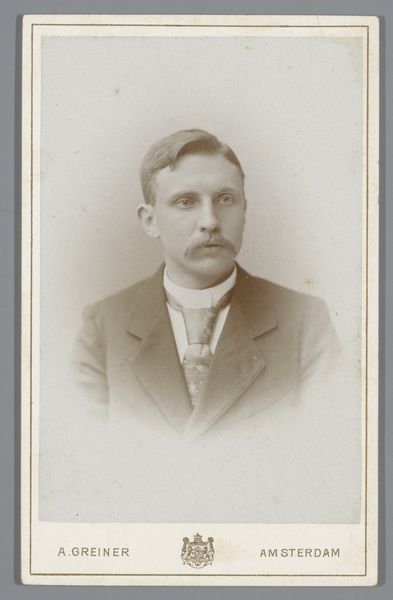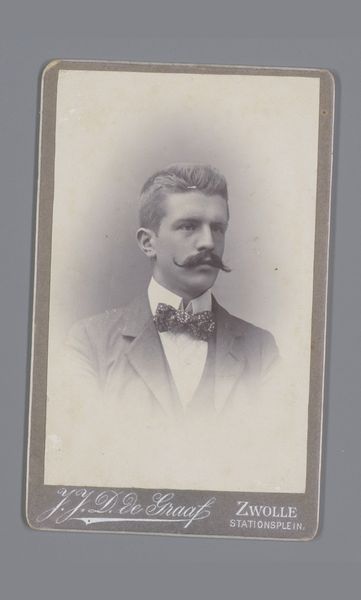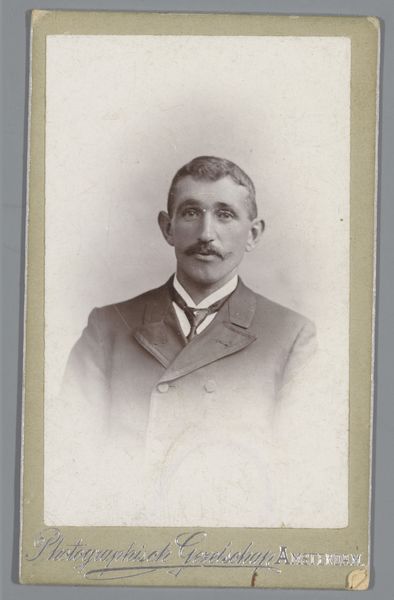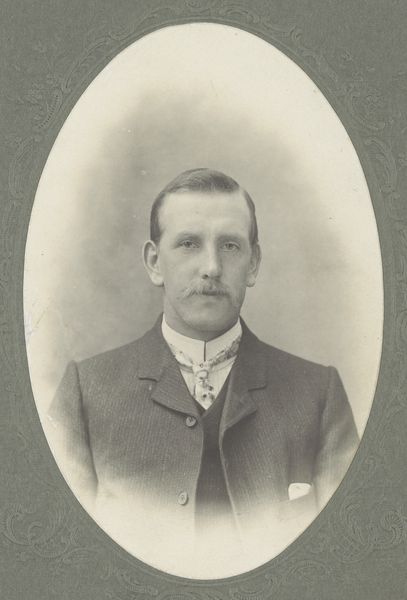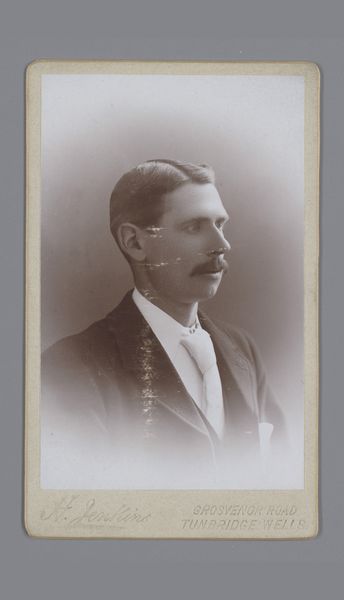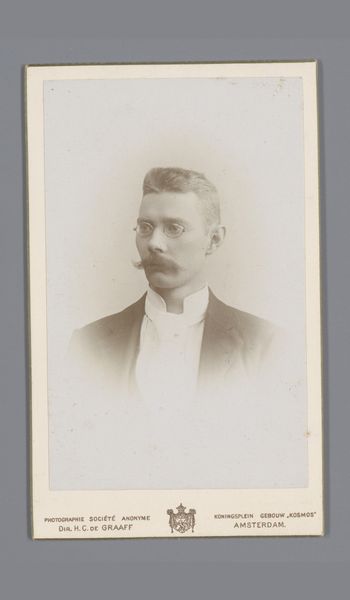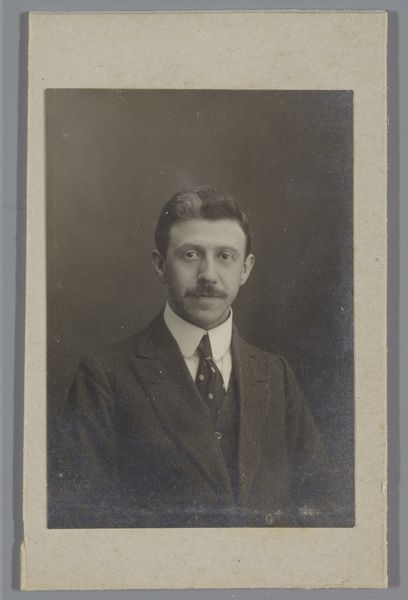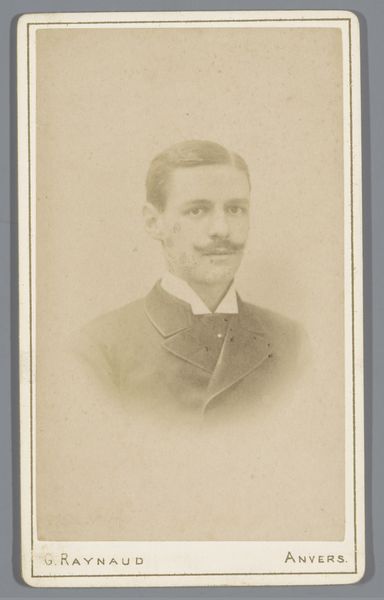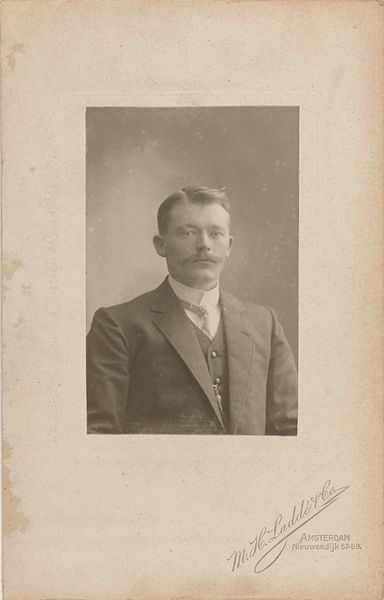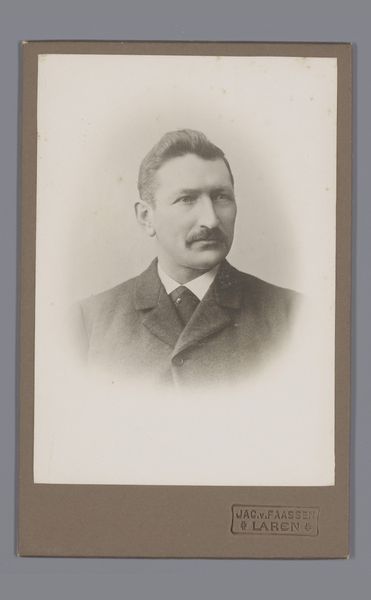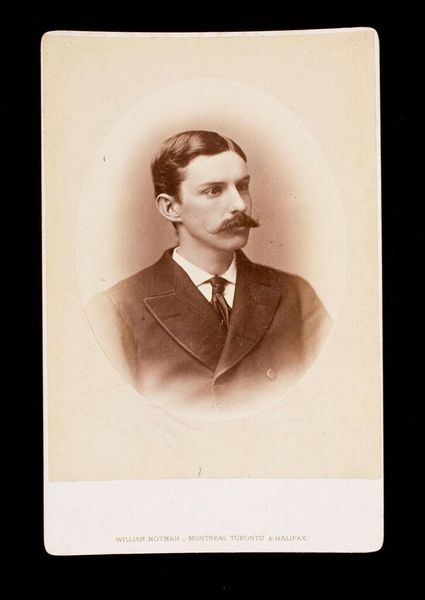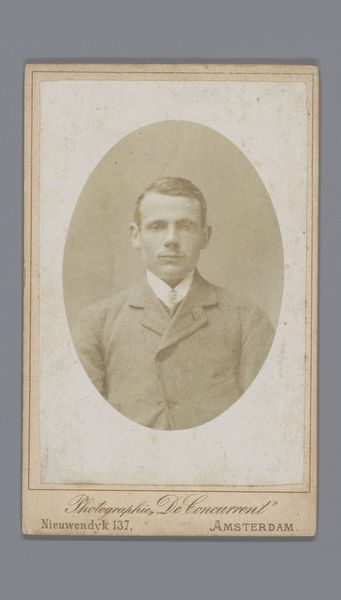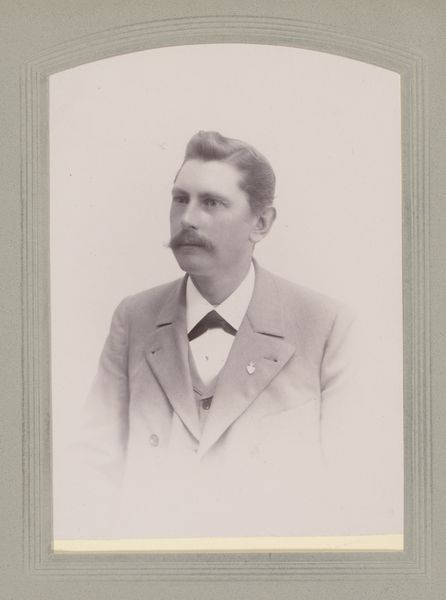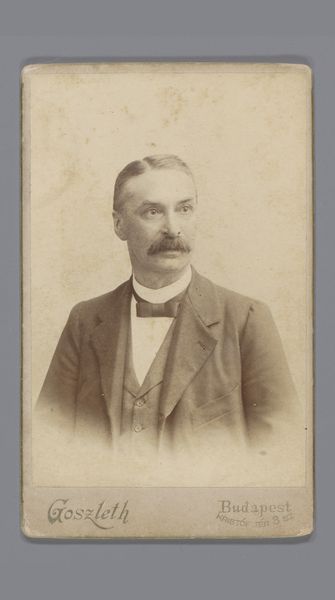
photography, gelatin-silver-print
#
portrait
#
photography
#
gelatin-silver-print
#
modernism
Dimensions: height 104 mm, width 64 mm
Copyright: Rijks Museum: Open Domain
Editor: This is a gelatin silver print, a portrait of Johannes Diderik van der Waals by Franz Eiffert, dating from 1892 to 1915. It strikes me as quite a formal image, very much of its time. What do you see in it? Curator: Well, I see more than just a formal portrait. The very act of creating this photograph speaks volumes about the changing social landscape. Consider the democratization of portraiture that photography enabled. Previously, portraits were the domain of the wealthy. Photography, however, made it accessible to a broader segment of society, including, presumably, this prominent scientist. Editor: That’s interesting! So, the photograph itself represents a shift in social power? Curator: Precisely! Also, it's essential to consider how the location—the Rijksmuseum—frames our understanding. A photograph like this gains new meaning when placed in the context of a national art collection. It becomes a historical document as much as a likeness of an individual. Who was van der Waals and why is he here? Editor: I believe he was a Nobel laureate for his work on equations of state for gases and liquids. So placing it in the Rijksmuseum elevates his social standing even more! Curator: Exactly! It highlights how institutions play a vital role in shaping and solidifying narratives about success and historical importance. Do you see it as merely a formal portrait now? Editor: Not at all. I hadn’t thought about how photography democratized portraiture and the power that museums have in shaping historical narratives. Curator: Glad I could offer a new perspective! Considering these broader contexts allows us to unpack the social and cultural significance of even seemingly straightforward artworks.
Comments
No comments
Be the first to comment and join the conversation on the ultimate creative platform.
